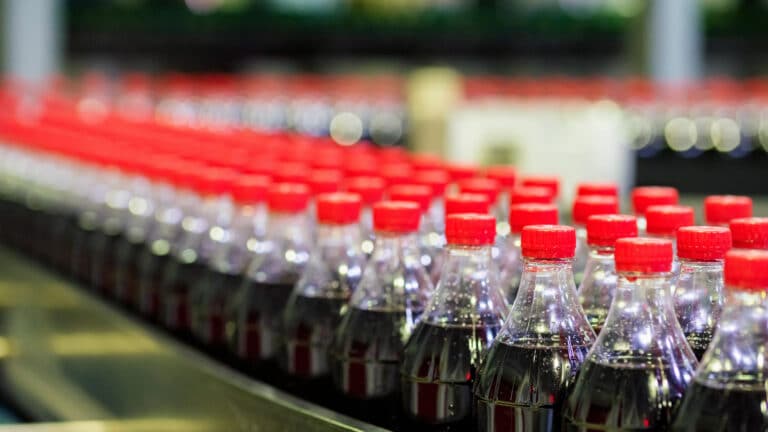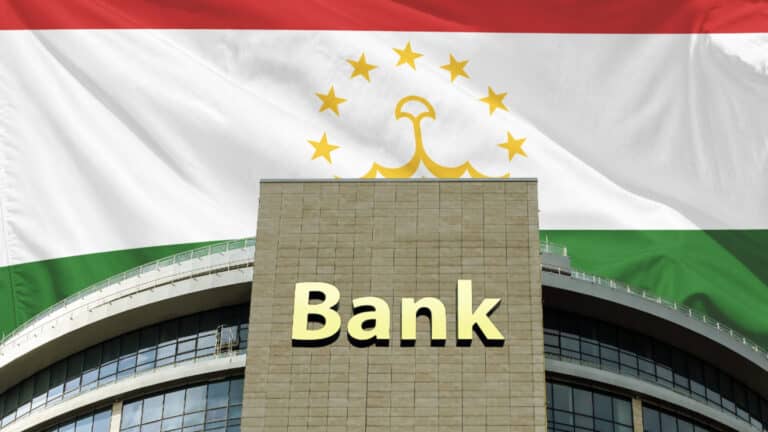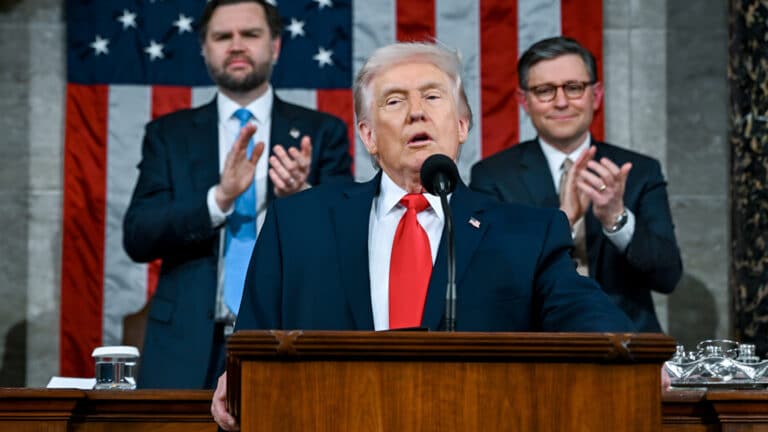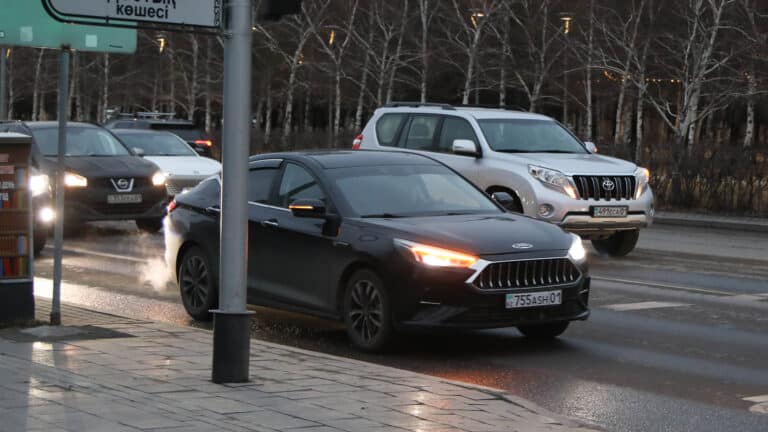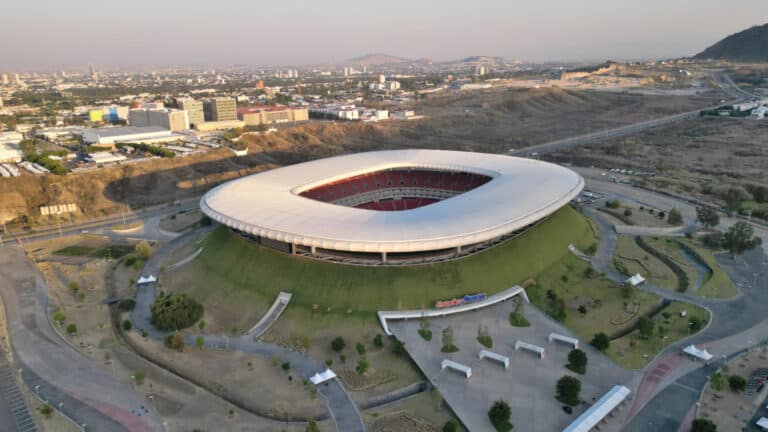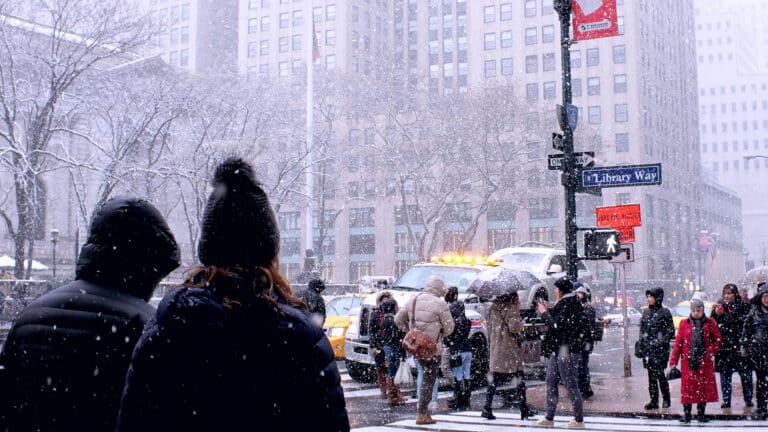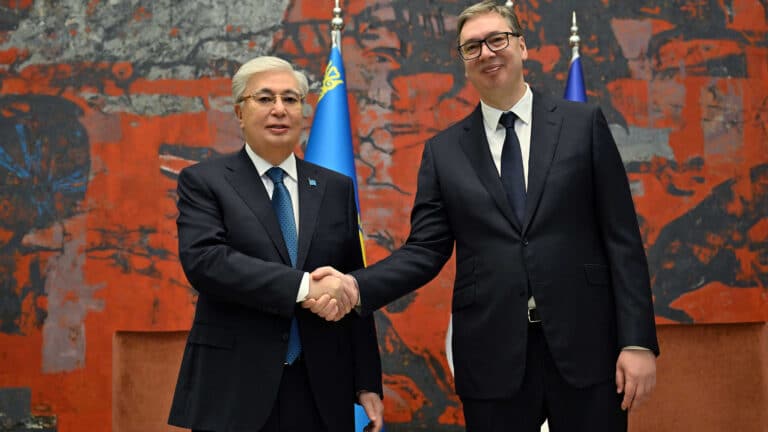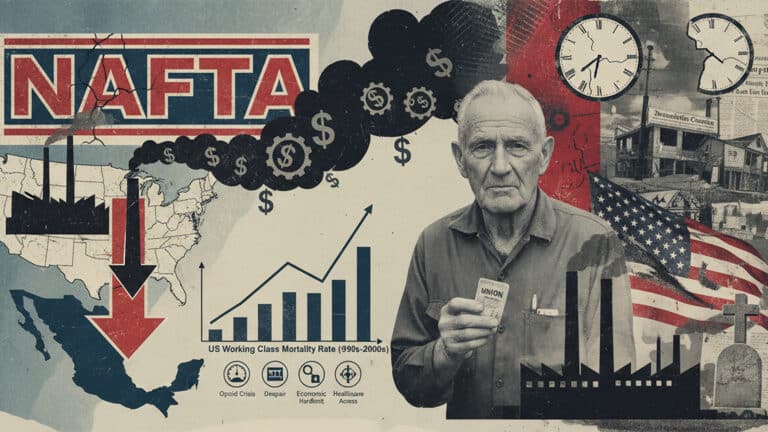Once the president addressed the nation on January 11, the hope for massive and long-awaited reforms has sparked in many of the people of Kazakhstan. For example, Tokayev has admitted that the market model built by the authorities has little impact on the people. What is even more destructive is that in some spheres the current system has been serving the interests of certain beneficiaries. The president has promised to put the task of improving people’s wellbeing to the top of the country’s high priorities list. The Kursiv edition is going to observe how far the government is going to go in the pursuit of these promises.
Bullet points of the January speech
According to President Kassym-Jomart Tokayev, the January tragedy in Almaty was caused by deep social and economic problems as well as failures by some state agencies. Even though the country’s economy generates stable growth of the GDP (especially during fat years), the distribution of the national income is poor.
«All of you know and understand this very well,» he said.
Despite quite impressive income on average, there is a huge gap between rich and poor people in the country. There is a rule – when an economy is growing all groups of a population must benefit from this growth but this simple truth doesn’t work in Kazakhstan, the president noted.
Tokayev has admitted that the only beneficiaries of the economic growth in the country were financial magnates and oligarchs. These oligopolies have limited free market development and decreased the competitiveness of the entire country. Moreover, the current process of privatization is not transparent or systematic, said Tokayev. He has promised to get the task of promotion of free competition under control.
«The new economic course is aimed at establishing and developing a modern and socially-oriented market-driven economy,» Tokayev stated. He believes that fair competition must be a crucial part of this new economy.
Even state support for businesses was mainly focused on big companies, which merely strengthens the oligopoly. Big companies used to thrive thanks to many privileges while causing problems for fair competition and reforms. This system was relying on the principle «for my friends everything, for the rest the law,» highlighted Tokayev.
After that, Tokayev turned against the Development Bank of Kazakhstan (BRK), blaming it for serving the interests of a select circle of financial and construction groups.
«These people had taken advantage of direct access to some powerful figures in favor of their projects. We know them very well,» said the president. He has ordered the government to reconsider the approach to the entity’s work.
On January 14, three days after the speech, the president’s nephew Kanysh Izbastin resigned from the office of first deputy head of BaiterekHolding (the parenting company to BRK).
First things first
There is no fair competition in the area of state procurement and cartel agreements are the common practice, said the president.
«Last year I ordered to take the pharmaceutical market under control. However, some people want this work to never be done, citing legal loopholes,» complained Tokayev. He’s admitted that at the level of executive bodies some of his orders could be sabotaged.
The president has also questioned the reasonability of the very existence of the Samruk-Kazyna fund due to its lack of transparency.
«Does the fund fulfill its main task of increasing the national wealth? What have all of those high-paid employees and the board members been doing? Are all those expensive consultants and foreign specialists the fund has hired really needed?» said Tokayev.
He has ordered the cabinet to prepare suggestions on the radical reforming of the quasi-state sector.
«If there is no option to reform the fund, there is no room for this entity in our economy,» stated the head of the state.
Diversification of the economy is not an easy task but it’s necessary for a country where the reprocessing industry is so weak, he said.
«We are still dependent on imports of many products. Each year we see a balance of payments deficit hike in our country. We still import goods made from aluminum, copper, and machinery manufacturing equipment. Perhaps, some are comfortable with the status quo of this situation,» added Tokayev.
The president thinks the government has to identify competitive industries based on what materials and expertise the country has and then to develop specific projects where foreign investors will be welcomed. This is one of the key tasks of the new government, the president highlighted.
Customs issues
The state budged desperately needs additional sources of income to stabilize the macroeconomy situation. According to Tokayev, there are three options for additional revenue. First, these are mining companies. The president has ordered the government to see how it is possible to increase payments from big mining companies to the state budget. (More likely, the president meant KAZ Minerals and ERG.) In turn, the government would provide those companies with benefits in the exploration of new sites. Second, these are gasoline producers and all sorts of small agents, which earn extra revenue while the oil prices are high. Tokayev believes that the state has to use excise taxes to get more money to the budget.
«The government has to calculate all of this. The price increase is unacceptable,» he said.
The third source of income is non-resource-based; it is linked to state borders, especially to the border with China, which is well known for the corruption across Kazakhstan’s customs points. This has already caused losses of hundreds of millions of dollars.
«There are some agents that are untouchable. No one from the law enforcement agencies would dare mess with them. Their vehicles haven’t been checked and no customs fees have been paid. The disparity in statistics with Chinese customs is about several billion dollars. This is not acceptable,» said the president. He’s ordered the government to conduct a full-scope inspection and take the customs border under control.
According to Telegram channel Тengenomika, over 2018–2020 the disparity between Kazakhstan and Chinese customs statistics was about $22 billion. If we assume that the Chinese data are correct, it means that over three years Kazakhstan’s customs downplayed Kazakhstan’s export by $4 billion and import from China by $18 billion. The vast majority of illegal flows of goods from China were under the control of Bolat Nazarbayev, younger brother of the former president, according to some Telegram channels.
Duty to share
Getting back to the topic of unfair distribution of the national wealth, Tokayev has called for the establishment of a new public fund, Kazakhstan Halkyna, which will be responsible for supporting the health system, education and social sphere. This may bring the people of Kazakhstan a feeling of social justice. Various lottery operators and totalizators will be obliged to make payments in favor of the new fund.
«Of course, we expect serious and regular, I stress regular donations from the big businesses,» said Tokayev.
Those companies and individuals who have made their fortunes during the past 30 years should pay such donations on a regular basis. The government has to identify this circle of donation payers and discuss the size of a contribution to the fund.
«Thanks to Elbasy (the Nation’s Leader, an official title of the first president Nazarbayev) there is a group of wealthy companies and people who are quite rich even by international standards. I think this is the right time to pay back to the people of Kazakhstan on a systematic and regular basis. Moreover, I expect that all other wealthy people who prefer to stay in the shadow to actively participate in this endeavor,» the president highlighted.
Proven intention
There is no clue how far Kazakhstan authorities are ready to go with reforms. However, Tokayev’s address is no doubt revisionist at least toward the economic course developed by his predecessor. In his speech, the president mentioned two companies that caused his discontent, BRK and Operator ROP. Speaking about the quasi-state entity (BRK) Tokayev has recommended reconsidering the approach to it; while speaking about the private company (Operator ROP) the order was to take the right to collect car disposal tax from the company and to give it over to the state agency. According to ADATA service, the owner of the Operator ROP is Shnar Muktarova.
However, it’s obvious for anyone in Kazakhstan that the real owner of the company is a powerful person. According to some media reports, Aliya Nazarbayeva (youngest daughter of Nazarbayev) might be this person.
Moreover, all three sons-in-law of Nazarbayev have lost their high-paid jobs. As Samruk-Kazyna announced on its official website, Dimash Dosanov is no longer head of KazTransOil while Kairat Sharipbayev has resigned from QazaqGaz. In both cases, the job contracts were stopped ahead of schedule on January 14. Three days after that the third son-in-law of the first president Timur Kulibayev announced his resignation from the national entrepreneurs’ chamber Atameken. On the same day, Nazarbayev’s nephew Samat Abish was discharged from the position of deputy head of the Committee for National Security (KNB).
The family of Nazarbayev has obviously lost its positions in the government and may lose some sources of gray income. However, the family’s members are still owners of the most lucrative businesses in the country. It is likely that they are those people President Tokayev has required to donate a piece of their fortune to the people of Kazakhstan. (It is hard to imagine Kazakhstan’s authorities to dare redistribute the national assets.)
The obligation to make donations is not a market-driven action. However, the president may refer to unfair competition that helped the family to make a fortune and voters are likely to support this idea.
Non-market acquired wealth can be understood, for example, as wealth obtained as a result of non-public privatization transactions, uncompetitive access to natural resources and cheap funds, exclusive access to those segments where there is no competition at all (like car recycling). The list of donation payers, the mechanism of their selection and the size of possible contributions to the fund have yet to be announced.
The rich of Kazakhstan. 1
Kazakhstan’s Forbes rating might give a clue who can enter the list (even though the edition evaluates only public fortunes). The top 50 richest businessmen of Kazakhstan for 2021 included only three direct members of the Nazarbayev family. These are Timur and Dinara Kulibayev and Nurali Aliyev, grandson of the first president. When KazMunayGas decided to get rid of its gas station network in 2019 (apparently with the noble purpose of transferring non-core assets to a competitive environment), Timur Kulibayev bought the entire network. Last year, Kulibayev sold Almaty Airport for $365 million as well as a stake in KazAzot, having received about $91.8 million for 50% of his shares. According to Forbes estimates, the Kulibaevs possess a fortune of $5.8 billion (as of April 23, 2021).
Nurali Aliyev’s assets were estimated at $195 million. He also participated in the privatization and now heads the board of Transtelecom (the former subsidiary of Kazakhstan Railways). He controls 75% of the company’s shares. His mother Dariga Nazarbayeva (older daughter of Nazarbayev) has no registered business after transferring the radio station Europe Plus Kazakhstan and the NTK TV channel to her son, according to Forbes. In 2013, Dariga sold the Alma-TV company to Dinmukhamet Idrisov (No. 20 in the Forbes list of Kazakhstan’s millionaires). In 2010, she sold Nurbank to Sofya Sarsenova, sister of another mogul Rashit Sarsenov (No. 10). In both cases, the deals’ value wasn’t disclosed.
In 2014, the Foundation of the first President of the Republic of Kazakhstan acquired 18% of Bank RBK. The deal surprised and shocked the public in Kazakhstan. All the shares were transferred to the Fund-Invest Property Management Directorate LLP, which was owned by Dariga Nazarbayeva. The shareholders of this bank also included Kairat Sharipbayev, Dinmukhamet Idrisov and Bolat Nazarbayev (with shares from 9 to 10%). At the end of 2017, Bank RBK almost went bankrupt but was saved with help of public funds and money from a new shareholder. Unlike BTA and Kazkom, it was not a systemically important bank, and it was saved, most likely, for image reasons. For example, another financial institute Qazaq Banki, which found itself in a similar situation (Idrisov was also one of its shareholders, but the name of the first president did not appear in connection with this bank), was liquidated by the authorities without any regret. An investigation was conducted into the embezzlement at Bank RBK and Qazaq Banki, a court was held, and those who had been found guilty were sent to prison. Perhaps, now, when the political circumstances have changed, they may want to reveal new details of those cases.
Financial funnel
Criticizing the system of state support that has developed in the country, Tokayev noted that those public funds that went to large projects and their “well-known initiators” could go to the development of small- and medium-sized businesses. For instance, the government spent a huge amount of money to save some commercial banks such as Tsesnabank (owned by Adilbek Dzhaksybekov). This operation cost the country over $2.3 billion; $225 million given by the National Bank within the financial stability improvement efforts aren’t included. Unlike the situation with RBK, no one was held liable for bringing Tsesnabank to bankruptcy. The current list of millionaires by Forbes doesn’t include the family of Dzhaksybekov even though back in 2018 Dauren Zhaksybek (the son of a once-powerful official) was ranked seventh on the list.
Because the state nationalized Tsesnabank’s losses, the deal turned out to be extremely profitable for its new owners. At the end of 2019, the consolidated profit of Jusan Bank reached $631.1 million including $553.1 million from the reverse acquisition (that is, from the accession of First Heartland Bank to Tsesnabank). According to the audited statements, this income was received “due to a forced sale and hard times for the bank” in which Tsesnabank found itself at the time of the transaction. Later, Jusan Bank paid generous dividends to its shareholder, although it would be fair if this money were returned to the government as reimbursement for the $2.3 billion that were spent to save Tsesnabank from bankruptcy.
The final beneficiary of Jusan Bank is the private entity called Nazarbayev Foundation. A prominent businessman Galimzhan Yesenov owns a 20% stake in the bank (No. 21 in the Forbes list). According to some media reports, he is the son-in-law of Akhmetzhan Yesimov, nephew of Nursultan Nazarbayev. The last official position Yessimov took was chairman of the board of the Samruk-Kazyna Fund. He left the office in March last year, shortly after Jusan Bank bought ATFBank from Galimzhan Yesenov. As the international rating agencies noted, back then the transaction wasn’t transparent. According to a message on the KASE official website, the government wanted to buy out ATFBank’s bad loans for $400 million, but later this message was quickly deleted. The audit reports of Jusan and ATFBank for the year 2020, in which the details of the transaction should be disclosed, haven’t been published yet. In 2017, the government had already supported ATFBank with a loan of $229.5 million under the program to increase financial stability of the bank system.
The rich of Kazakhstan. 2
In addition to the Kulibayev couple and Nurali Aliyev, there is another person in the Forbes list who can be considered a member of the Nazarbayev family. This is Kairat Boranbayev (No. 14 with a fortune of $590 million). He and Dariga Nazarbayeva became relatives in 2013 when Dariga’s youngest son Aisultan married Boranbayev’s daughter. Three years later, the businessman was included in the Forbes list. Among his assets are the Rahat Palace Hotel, Almaty Shopping Center, Esentai Tower and Esentai Mall (50%), and McDonald’s Kazakhstan fast-food chain. Along with partners from Russia, he owns the Karaganda Pharmaceutical Complex which has been producing a COVID-19 vaccine.
He also owns RR2 company (Aparking) that manages the paid parking lots in Almaty. This project was launched in 2016, when Bauyrzhan Baibek (the son of a classmate of Nursultan Nazarbayev) was the city’s mayor.
Four people from the Forbes list have made their fortune from copper mining. These are the owners of KAZ Minerals and Kazakhmys Corporation Vladimir Kim (No. 1 in the Forbes ranking), Eduard Ogai and Oleg Novachuk (both hold 18th position), and Vladislav Kim (No. 27). Their wealth is estimated at $5.8 billion in total. As a minor shareholder of RBK Bank, Vladimir Kim was forced to pump about $367.2 million into the bank in addition to $560 million allocated by the National Bank. Perhaps they are the people whom Tokayev mentioned in his speech about imports of products made of aluminum and copper while the country is a world leader in producing these metals.
Among owners of Eurasian Resources Group (ERG), only the Ibragimov family (No. 8 with a fortune of $980 million) is on the Forbes Kazakhstan list, since Alexander Mashkevich and Patokh Shodiev do not have Kazakhstani citizenship. ERG owns aluminum and electrolysis plants, Kazchrome and SSGPO companies, as well as a bank and a major insurance company. Despite generating huge income from the businesses, the moguls are okay with accepting assistance from the government: in 2017 the Eurasian Bank received $344.2 million from the National Bank under the program aimed at increasing financial stability of the bank system. Patokh Shodiev’s nephew Orifjan Shadiyev used to own two banks in Kazakhstan; both of them went bankrupt last year. One of them still owes the National Bank of Kazakhstan almost $36.7 million. According to the court settlement, Shadiyev must return this money by the end of 2024.
Bulat Utemuratov with a fortune of $3.5 billion is ranked No. 4 on the Forbes list. He owns three Ritz-Carlton hotels in Nur-Sultan, Vienna and Moscow, the Rixos Borovoe Hotel, the Talan Towers business center in Nur-Sultan, two business centers in Almaty, ForteBank (which absorbed the previously nationalized Alliance Bank and Temirbank), 25% stake in KaR-Tel mobile operator (Beeline), 80% stake in the 31 Channel, radio and TV broadcasting company, and 65% shares of the gold mining company RG Gold. Also, Utemuratov possesses 1.16% of Glencore from Switzerland, which he has received in exchange for a stake in Kazzinc.
The ninth position in the Forbes list with a fortune of $950 million is occupied by Kenes Rakishev, son-in-law of the former influential official Imangali Tasmagambetov. He did a favor to the government when he participated in the privatization of BTA in 2014 because the transfer of a previously nationalized bank to a private investor was a matter of prestige for the authorities. Later, he also “rescued” Kazkom. The “rescue” of Kazkom (the bank was sold to Halyk Bank for $0.004) cost the government $6 billion, which was spent on repurchasing bad loans. BTA Bank wasn’t saved though; it was turned into a collection company, which Rakishev still owns (among other tasks the company is aimed at returning assets illegally withdrawn by Mukhtar Ablyazov). In December 2020, sensational news appeared in the media when a British court had frozen Bulat Utemuratov’s assets during the suit of BTA Bank, in which the plaintiff claimed Utemuratov was involved in hiding the funds stolen by Ablyazov. A few days later, the lawsuit was withdrawn, as Utemuratov’s lawyers submitted documents proving his innocence, the Verny Capital reported.
Money-making machine
In the speech on January 11, President Tokayev used the word “corruption” only once. It was uttered in relation to the LRT construction project in Nur-Sultan. While corruption has penetrated every bid and contract, it is also the reason for many other financial wrongdoings that undermine the idea of competition and cut off all incentives to work from law-abiding businesses.
Last September, deputy head of the State Revenue Committee of the Ministry of Finance Zhaidar Inkerbayev announced the results of the first stage of the universal declaration of income, which showed amazing data. In total, 497,000 declarations were submitted by civil servants and their relatives such as wives and husbands. Among them, 440 individuals reported having accounts in foreign banks for $1.5 billion in total (about $3.7 million per official on average). For comparison, as of September 1, 2021, the total amount of retail deposits of regular people in the four regions of the country (the Turkestan, Kyzylorda, Zhambyl and Akmola regions) was about $1.4 billion.


